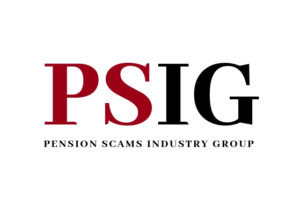 PSIG Code on combating pension scams
PSIG Code on combating pension scams
The Pension Scams Industry Group (PSIG), the voluntary body set up to combat pension scams through the publication of good practice in due diligence for trustees, providers and administrators, has launched Version 2.0 of Combating Pension Scams – A Code of Good Practice.
The original Code, first published in 2015, set out the key steps to help identify possible pension scams, as well as providing practical guidance like checklists and sample letters. Whilst the code has no statutory basis, schemes have been adopting its guidelines in the three years since its launch, resulting in the prevention of thousands of transfers to unauthorised arrangements and saving many people from a likely loss of pension savings.
Version 2.0 of the code has been published to reflect a new world of scamming and changes to the market and scammers’ tactics. Highlights include:
- A focus on vulnerable customers
- How schemes can talk to transferring members to collect better information
- Recommending schemes refer insistent members to TPAS for impartial guidance
- Making it easier for schemes to report suspected scams to Action Fraud
- Expanded template letters and stronger member discharges
- Case studies portraying real decisions made by real schemes
- Greater clarity on member responsibility where decisions have been made contrary to due warning
Margaret Snowdon OBE, Chair of the PSIG said “The growth in international SIPPs and QROPS means that the scamming landscape has changed significantly in recent years. This, coupled with more members wanting to exercise pension freedoms and ever more sophisticated scamming tactics means we need to be able to respond effectively. Whilst we await regulation to help stop cold calls and make it tougher to transfer, the industry needs tools to help pinpoint dubious arrangements. Scammers spend time grooming their victims, so we encourage schemes to speak with members to fully understand their situation and refer insistent customers to TPAS, who can explain the risks of scamming from an impartial standpoint.
“The updated Code is bold and informative, containing more case studies and stronger template letters and discharges to help schemes safeguard their members. I am grateful to the team and reviewers who made this possible and extend special thanks to the Minister for Pensions, who has shown support for the Code by writing its foreword.”
James Walsh, Policy Lead: Engagement, EU & Regulation, at the Pension and Lifetime Savings Association (PLSA), said: “This new code is a crucial step in protecting savers from high risk or fraudulent investments that could lead to them losing their hard-earned pension savings. Since the pension freedoms came into effect, there has been an increase in the number of people being contacted by fraudsters and, with the scammers becoming increasingly sophisticated, it’s vital that the industry raises its game in response. The PLSA is pleased to host the Code on our website.”
Michelle Cracknell, Chief Executive of The Pensions Advisory Service, said: “The scourge of pension scams continue with the scammers taking advantage of people being disconnected and not fully understanding their pensions. The types of scams continually evolve with many being legal, making it even harder to protect the customers. We are delighted that PSIG has updated its code as it is imperative that we all work together to try to stop customers falling victims to pension scams.”
Kim Gubler, Deputy Chair of The Pensions Administration Standards Association, said: “Administrators are at the forefront of the fight against scams, so PASA is pleased to support the Code and encourages administration providers to adopt its principles into their own procedures on transfers. We welcome the update and the new standard letters, which will go a long way to helping schemes put greater protection in place for their members.”
Version 3.0 of the Code is available to download from the PSIG website.
